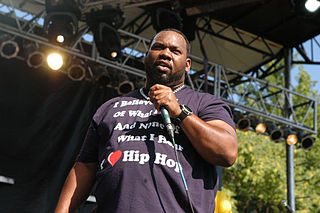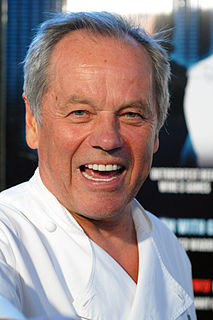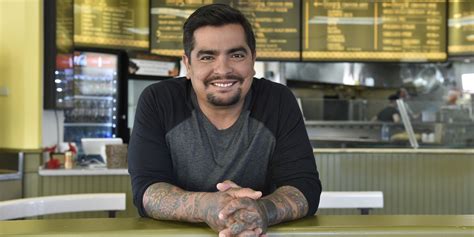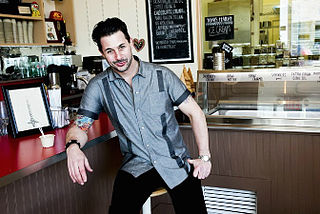A Quote by Mario Batali
What I like to do when I go out is enjoy my friends and the food around it. If we have to stop and give five minutes to the chef, then I'm down with that. But if the chef has to interrupt every course to tell us how important this new revolution that's happening is, then I'm not so much interested in that.
Related Quotes
IMBECILE!" the chef shouted. "Next time why don't you just put your whole HAND in the food, hey? Yes, your whole hand, or maybe your FACE! I arrange the food on plates with care, are you understanding what I am telling you? It is part of the art form of cooking, yes? A lovely plate of food is a thing of beauty! And then you, NUMBSKULL, come along and put your fat greasy FINGERS all over my plate, and SHAKE the plate, and move my food all around the plate until it looks like pigs' vomit!" "Chef Vlad!" I cried out in delight.
A chef is a chef, a cook is a cook; a lorry driver is a lorry driver and a designer is a designer. I've never heard anyone say that Philippe Starck is a chef. The important thing is dialogue. If I said to Norman Foster that he was a chef he'd say "No", but he might have a dialogue with chefs. People have said to me for many years that I'm not a chef and that I'm an artist instead, but I always say, "No, I'm a chef." I just have dialogues with designers.
When you think of a chef you think of somebody that could cook - you don't think of chef that says, 'Yo, I make only steaks'. No. A chef knows how to bake, he knows how to fry, he knows how to sautee, he knows how to do everything that's pertaining to food, and that's how I felt about my lyrical position. It's like I would say, 'Today I'm gonna make a hot salmon. Tomorrow I make you spaghetti. The next day I make you baked fish'. This is how my lyrical content in my head was already bein' reciprocated to the world, bein' given to y'all like that.
The pendulum of cookery techniques became more significant than the actual experience. And when that happens, the customer's satisfaction becomes secondary to the chef's satisfaction. And in that case, you have an upside-down equation. Because the customer is the basis of our restaurant, first of all, and if the chef becomes the most important person at the table - even more so than the guests - then suddenly you're left with something that doesn't really work.





































